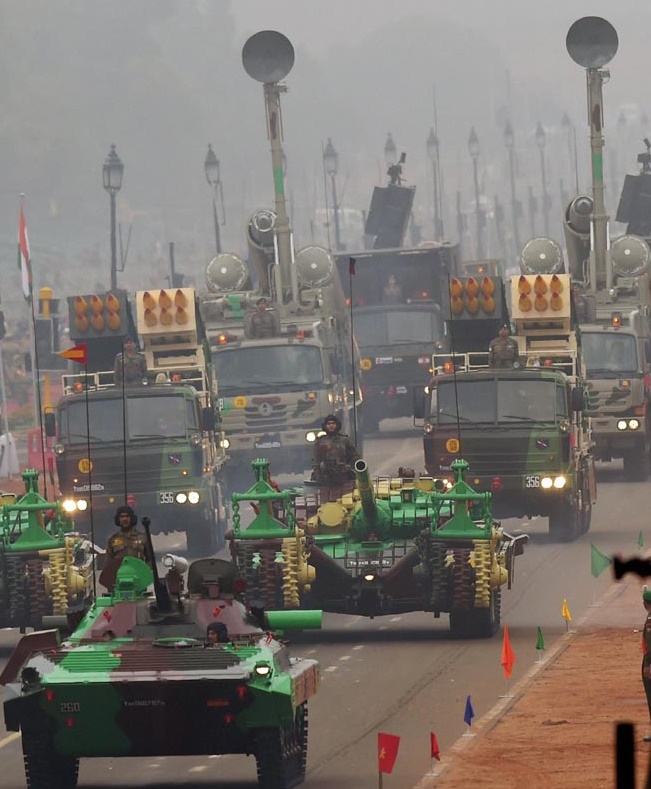
A file photo.
NEW DELHI (PTI): Private sector players can now apply to commerce ministry for licences to manufacture tanks, fighter planes, warships and other defence equipment, a step which the government feels will promote ease of doing business and give impetus to 'Make In India' initiative.
In a gazette notification, the home ministry said the secretary in the Department of Industrial Policy and Promotion (DIPP) can now issue licences for manufacturing of defence items.
However, the licences will be issued to the prospective manufacturers by the DIPP under the home ministry's "supervision and control", the notification said. The power of issuing licences was exclusively with the home ministry earlier.
The decision has been taken to expedite the 'Make In India' initiative, a pet project of the Narendra Modi government, and to invite private sector in the defence manufacturing sector, an official said.
The DIPP comes under the Ministry of Commerce and Industry and mainly deals with promotion of investment and industries. The private sector can now apply to the DIPP for the licences.
The categories which will come under the new arrangement are: tanks and other armoured fighting vehicles, military vehicles fitted with mountings for arms or equipment for mine lying, all tracked and wheeled self propelled armoured and non-armoured weapon systems and all-wheel drive vehicles capable of off-road use.
Defence aircraft, spacecraft and their parts, helicopters, lighter-than-air vehicles, unmanned aerial vehicles, remotely piloted vehicles, warships of all kinds, vessels fitted with automatic weapons, chemical, biological, radiological and nuclear protect, special naval equipment, anti-submarines or torpedo nets will also come under its purview.
The home ministry has given security clearance to nearly 3,300 fresh investment proposals in the last three years after conducting national risk assessment.
It issued policy guidelines for assessment of proposals for national security clearance on July 1, 2015 with the objective of ensuring a balance between requirements of national security and the imperatives of rapid economic growth.
The objective of the national security clearance is to evaluate potential threats, visible or embedded, in proposals received by the home ministry and to provide a national risk assessment, an official said.
The national security clearance policy was drawn up by the home ministry to fast-track the security clearance process within 4-6 weeks as part of ease of business mantra under the 'Make In India' initiative.
According to the policy, the promoters, owners and directors of a company are mandated to give self declarations regarding any criminal history on their part, which reduced the period required to give security clearance from 2-3 months earlier to to just 4-6 weeks now.
Security inputs from the Intelligence Bureau, the CBI, the Enforcement Directorate and other agencies are sought only in serious crimes and not in case of minor offences.
A total of 14-15 parameters have been set out in eight to nine sensitive areas like telecom, ports, civil aviation, uplinking/downlinking of TV channels or FM stations.
The home ministry has also spelt out locations where foreign investment is not welcome such as those close to border and vital installations.
 Previous Article
Previous Article Next Article
Next Article












The Indian Air Force, in its flight trials evaluation report submitted before the Defence Ministry l..
view articleAn insight into the Medium Multi-Role Combat Aircraft competition...
view articleSky enthusiasts can now spot the International Space Station (ISS) commanded by Indian-American astr..
view article